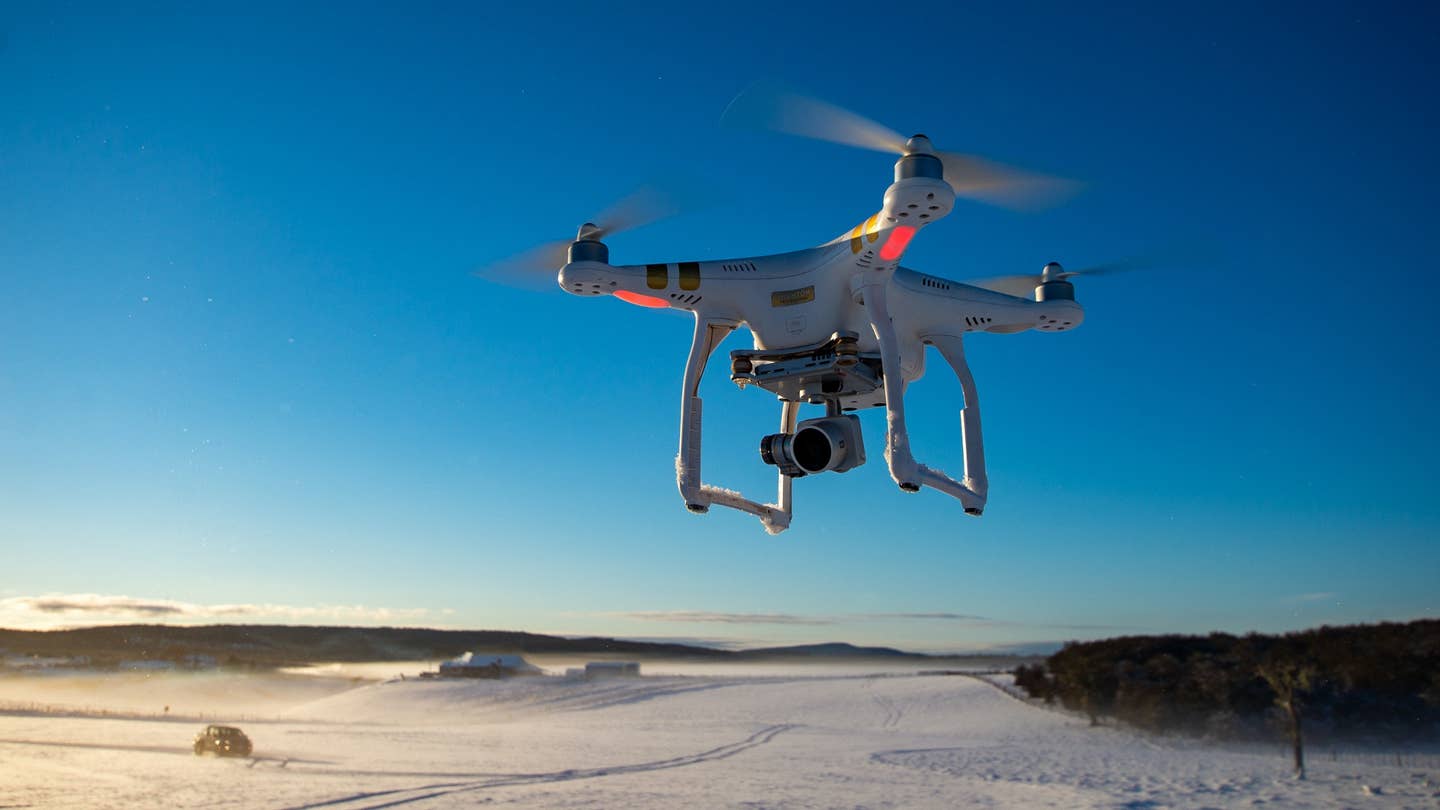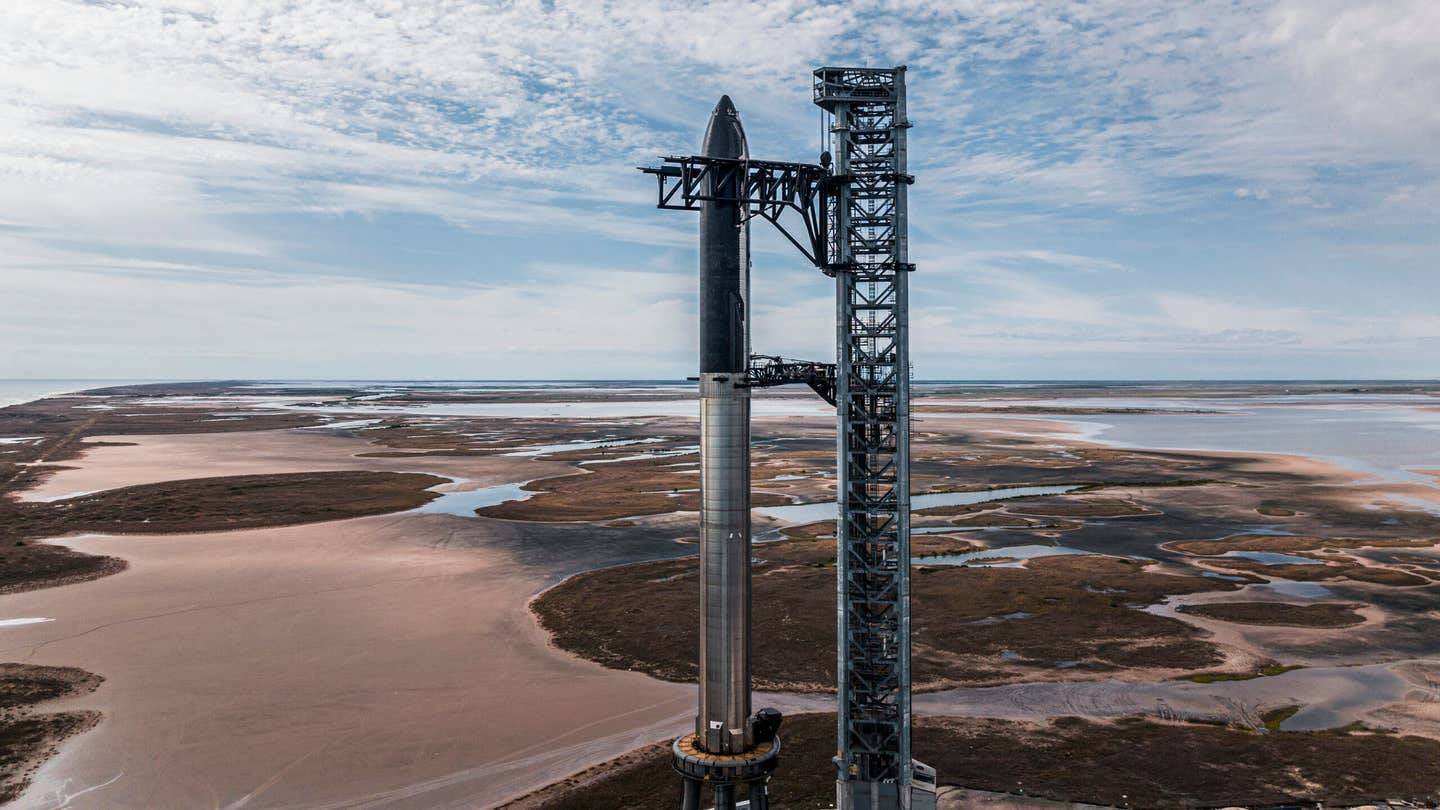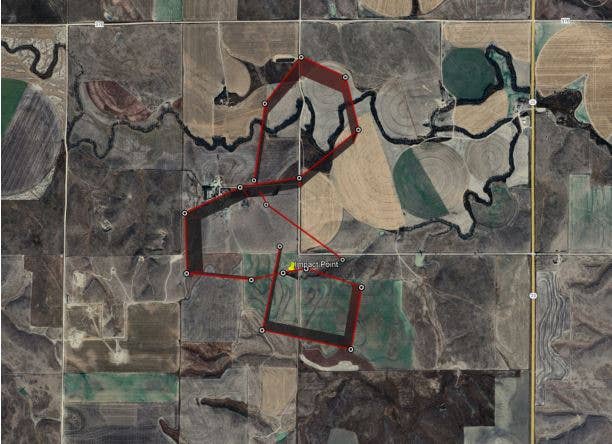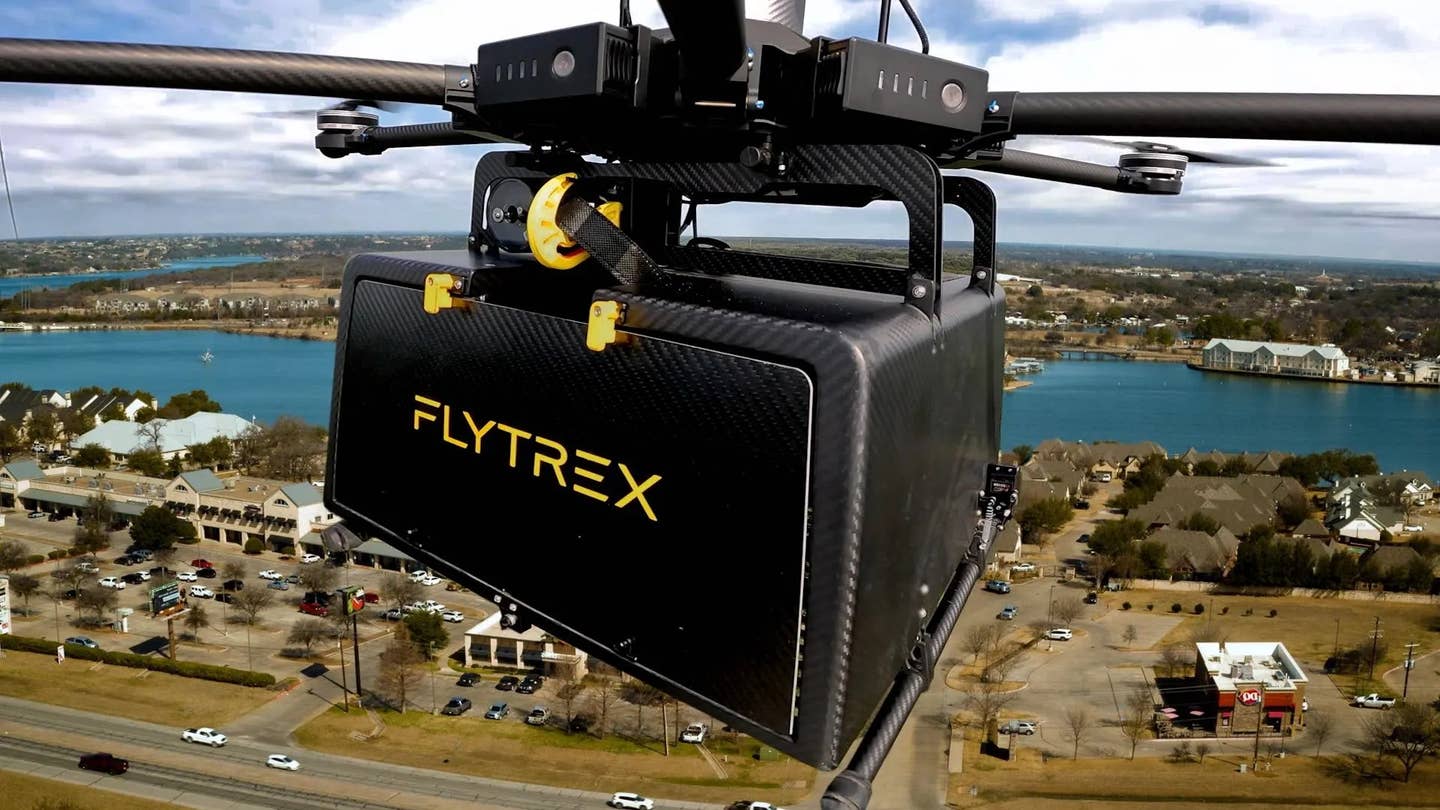Defense Policy Bill Would Ban Chinese, Russian Drone Tech in U.S.
A protectionist drone bill made it into the National Defense Authorization Act of 2024, which passed both houses of Congress this week.

DJI’s Phantom drone is among the models that would be banned from procurement or use by federal agencies. [Courtesy: Emiliano Arano/Pexels]
Buried within the text of the National Defense Authorization Act (NDAA) of 2024, which passed both houses of Congress this week, is a ban on the world’s most popular drone.
The NDAA includes language that would prohibit federal agencies and federally funded programs from purchasing or using drones manufactured in countries that are viewed as threats to U.S. national security: namely, China and Russia. It’s now a signature from President Joe Biden away from becoming law.
While the legislation did not name specific companies, the restrictions would take aim at China’s DJI—the largest consumer drone company in the world by market share—and Autel, which isn’t far behind. According to Drone Industry Insights, DJI owns 73 percent of the U.S. market.
The drone-related provisions in the NDAA come from the American Security Drone Act (ASDA) of 2023: one of several protectionist bills introduced to shield American skies from the supposed threat of Chinese and Russian drone surveillance. Lawmakers have characterized the aircraft as “TikTok with wings,” alluding to allegations that the Chinese social media platform spies on its users.
The bipartisan legislation was first introduced in the Senate in February and was added to the NDAA in July. An identical House version of the bill was introduced in November.
The NDAA’s passage was cheered by Senator Rick Scott (R-Fla.), one of architects behind the Senate ASDA bill, and Representative Mike Gallagher (R-Wis.), an original cosponsor of the House bill.
“Getting this bill passed in this year’s NDAA is a massive win for our national security and the safety of Florida families,” said Scott. “Communist China has been known to spy on us, using companies like drone maker DJI, who are obligated by law to report back to the evil regime, to carry out its information collection missions…The U.S. will now no longer spend taxpayer dollars to let Communist China spy on us through their drones.”
At present, there is no conclusive evidence that the Chinese government or Chinese Communist Party (CCP) is using drones from DJI or other manufacturers to spy on American citizens or assets. However, lawmakers continue to decry the potential for sensitive information to be beamed back to China. They also worry the drones are being used for other nefarious purposes.
For example, allegations that DJI drones are being used by the Chinese government to surveil Uyghur muslims prompted the Department of Defense to dub it a “Chinese military company,” a characterization the firm swiftly denied. However, despite China’s restriction of drone exports, DJI technology has been discovered in drones on the battlefield in Russia and Ukraine and the Middle East.
Lawmakers’ concerns are shared by some within the drone industry. The Association for Uncrewed Vehicle Systems International (AUVSI), for example, lauded the NDAA’s inclusion of ASDA language, urging the Biden administration to sign it into law quickly.
“Prohibiting federal agencies from purchasing or operating non-secure drones, especially those produced by Chinese firms, is a necessary step in protecting our nation from cyber risks, espionage, and sabotage,” said Michael Robbins, chief advocacy officer of AUVSI. “Rational, tailored country-of-origin drone restrictions like those within ASDA are critical to protecting U.S. national security…American reliance on foreign adversaries for drone technology must end.”
While lawmakers on both sides of the aisle appear to support the ASDA language, detractors argue that country-of-origin bans are simply unnecessary. Some contend that the legislation props up technologically inferior, domestic drones at the expense of models from foreign manufacturers such as DJI, which are considered by many to be the best available.
“There is legislation pending in Congress today that addresses a national security situation that has been created out of thin air,” Steve Sherman, a former Iowa House candidate, wrote for RealClearPolicy. “Furthermore, the legislation is protectionist and an attempt to shield inferior products from competition abroad. Congress does not have the time to tackle mythical national security threats when there are real ones that go unaddressed every day.”
Like it or not, however, the ASDA is poised to become law in the not-so-distant future. And it could have a significant impact on the U.S. drone market.
What’s in the Bill?
Scott and Senator Mark Warner (D-Va.) introduced the original ASDA legislation in February, garnering cosponsors from both parties.
At a high level, the proposed bill called for a ban on federal procurement and operation of foreign, commercial off-the-shelf drones or unmanned aircraft systems (UAS) manufactured or assembled in “covered” countries, or those the U.S. views as hostile. China—and entities thought to be under its control—are on the list. The bill also proposed prohibiting state and local governments from procuring covered tech using federal funding.
In July, Scott and Warner celebrated the bill’s addition to the NDAA, which put it on the radar of others on Capitol Hill. The language can be found under Title XVIII Subtitle B of the published text of the final NDAA, titled “Drone Security.”
Digging deeper, the legislation directs the Federal Acquisition Security Council and the Department of Transportation to develop and update a list of banned aircraft and components. Two years after passage, federal departments would be prohibited from using them.
In addition, all federal agencies would be required to collect data on their existing inventories of banned technology, which the government could track “at a classified level.” And within nine months, the U.S. Comptroller General would need to submit a report on the number of restricted drones procured by the government. Another required report would examine covered drone supply chains.
But there are several proposed exemptions to the restrictions.
The Departments of Homeland Security, Defense, State, and Transportation, FAA, National Transportation Safety Board (NTSB), and a few other agencies could still procure covered drones if they’re absolutely necessary for their missions. The first three, for example, could acquire banned technology if it’s in the U.S. “national interest” and would be used for research or counterterrorism purposes. Agencies would also be able to apply for waivers.
Notably, the ASDA language would not apply to any U.S. “intelligence activities.” State, local, or territorial law enforcement and emergency service agencies using non-federal dollars to procure banned tech would also be exempt. However, a few of them have taken matters into their own hands by introducing state-level bans on DJI and other drones, which are very popular among public safety agencies.
What It Means
The ASDA language only targets foreign drone use and procurement at the federal level, which means—for now—that DJI hobbyists will be unaffected. But that could change.
The U.S. has a long-standing aversion to Chinese drones. Its first success in weeding out the technology came in 2019 with the passage of the 2020 NDAA. That legislation prohibited the Department of Defense from acquiring and using drones manufactured in covered countries for military use, and the Department of Energy from doing so for defense activities.
Since then, DJI and other Chinese firms have been placed on the Department of Commerce’s Entity List, blacklisted by the Treasury Department, and even targeted via executive order. But many of these are considered “de facto” bans, holding little sway over actual government activities.
The ASDA language in the NDAA would change that. And if lawmakers are feeling emboldened, they could push for another piece of legislation that proposes more sweeping restrictions. The Countering CCP Drones Act, introduced in April by Gallagher and Rep. Elise Stefanik (R-N.Y.), could extend bans on Chinese drones to hobbyists, which in DJI’s case is its most popular segment.
The bill calls for DJI and others to be added to the Federal Communications Commission’s (FCC) covered list, preventing their tech from using FCC infrastructure. And with the FAA’s Remote ID rule taking effect March 16, almost all drones will be required to communicate using that infrastructure—which means even recreational drones could be grounded. Those rules would also apply to DJI’s recently unveiled delivery drone.
There has been little movement on the legislation since it was introduced. But with continued lobbying from American drone firms—and the impending expiration of federal counter-drone authority on February 3—lawmakers may be motivated to snuff out the perceived threat quickly.
Like this story? We think you'll also like the Future of FLYING newsletter sent every Thursday afternoon. Sign up now.

Subscribe to Our Newsletter
Get the latest FLYING stories delivered directly to your inbox






